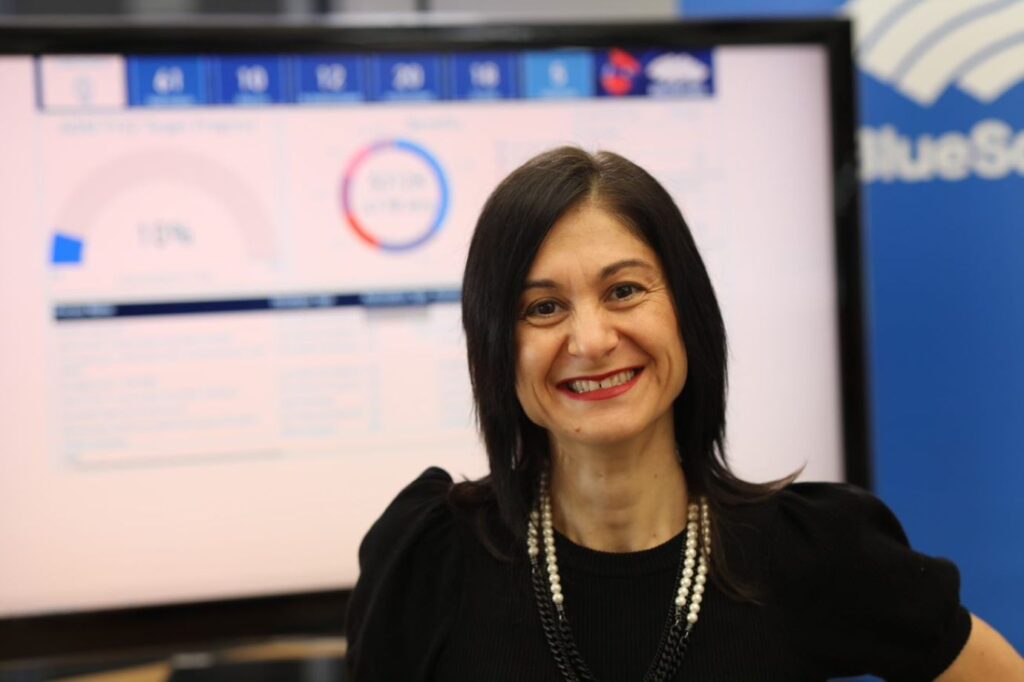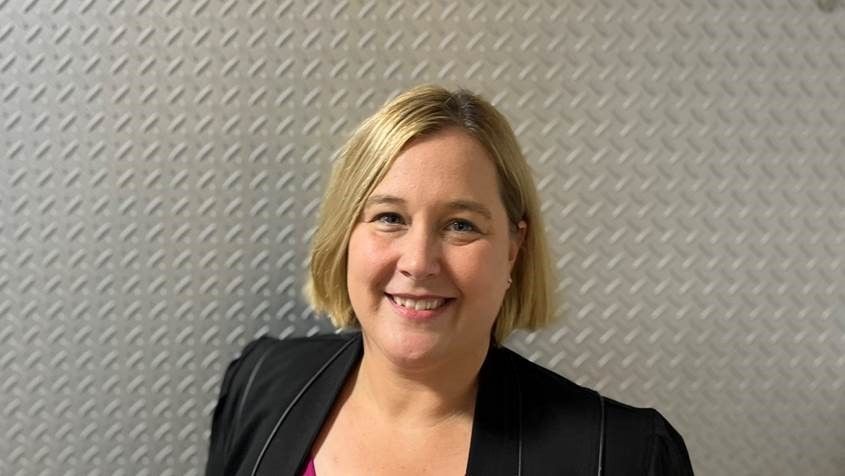The ability to reinvent – both personally and at a business level – is a superpower in this age of digital transformation and AI transformation.
For corporate executive Stephannie Jonovska, it’s a skill she values greatly.
In fact, she attributes much of her success over the past three decades to it.
Jonovska heads Finance Operations and Transformation at BlueScope, an award-winning company that generates billions of dollars in revenue each year.
She says having resilience to reinvent can be make or break in today’s economy.
“I’ve reinvented several times,” she tells Women’s Agenda.
“I’ve worked in finance, procurement, business improvement, finance transformation, now a broader role including finance operations and my role is changing again shortly, with the addition of the credit function.
“I think it shows the power of backing yourself, having great supporters that will also call you out and challenge you, but it’s also making sure that you feel satisfied.
“I want to have a sense of achievement, a sense of enjoyment. I didn’t necessarily get that in pure finance.
“I’m an okay accountant, I’m an okay finance person, but I’m a much better change leader and a much better developer of people.”

For Jonovska, who has been leading large teams through rapid technological change, the most fundamental ability as a leader is to understand people, connect with what drives them and unlock their potential.
And when she sees someone with promise, who demonstrates unique skills that can be transferred to grow the organisation – she makes sure that talent sees it and has opportunities in front of them.
She finds immense joy in watching emerging leaders like Kate Wadwell grow in the company.
“I knew that Kate would grow the role and grow with the role, so as a leader you need to back that too,” she says.
Wadwell, who manages finance operations, shares Jonovska’s deep commitment to people and a culture that thrives on shared success, growth, learning and experimentation.
“The most important thing that you can do is just care about your people and treat them with integrity and respect – that’s not saying we don’t hold our people accountable,” Wadwell tells Women’s Agenda.
“But I think if you put the people that you’re asking and relying on to drive this change at the front and centre, and just take a humanistic approach, that will get you a little bit further.”

The approach Wadwell and Jonovska have been taking is not going unnoticed.
Under their leadership, BlueScope has picked up several awards for innovation and other contributions to the finance community.
What’s their secret?
Put people first and stay curious
When leading people through transformative change like rapid advancements in AI which are reshaping the role and expectations of financial teams, Jonovska says the most critical thing leaders can do is know and back the people on their team.
“When people feel supported, they’re more likely to jump into the unknown with you and trust you as well,” she says.
“It goes to that adaptive leadership. Things are moving so fast again.
“You don’t have to have all the answers, but you need to be curious, sceptical and decisive at the same time. That’s actually a very special blend of skills: thinking differently into the future.
“‘I’m not sure exactly, but I think we’re going this way’ is better than not doing anything.”
When managing large or remote teams, Wadwell says it can make a world of difference when leaders actively ensure all workers feel part of a united effort to solve the organisation’s problems and improve outcomes for customers.
“We have 85 full-time employees working remotely that support our finance operations. Whilst not co-located, we treat them as part of BlueScope so they feel included,” Wadwell says.
“They are reporting to me, we do town halls, we do employee engagement activities with them. We have a whole program of work around that – everything to make them feel like they’re part of our business.
“It’s about ensuring people know why their job matters, what it is that they do that makes a difference to someone else in BlueScope. They might think they’re just processing invoices but actually their role is really important to our business.”
Consider AI an enhancer not a replacer
AI is driving financial operations into the future and it’s transforming how every role from Accountant to Chief Financial Officer functions.
But Jonovska says leaders can benefit by looking at it as a tool to augment or enhance how people work rather than a way of replacing human beings.
With this in mind, staff need to be empowered with skills, encouragement and support to embrace this change so they don’t see it as an enemy.
“This is a leadership journey,” says Jonovska.
“It’s actually not a technology journey and the less we talk about the fun things we can do with AI and more about the problems we are solving, that’s where the real power comes from.
“We can talk about automating routine processes, which is really important and creating capacity, which is great.
“But we need to work on the capability of our people because it is quite frightening for them – they are being told this will replace your job.
“I’ve quite openly said it won’t replace your jobs, but someone who uses AI will replace your job.
“I think it’s more about the leadership and building that culture of human plus machine equals better, not human versus machine.
“We need our people to be embracing AI as their co-worker.”
Human-centered leadership in this area can ensure staff feel empowered and not anxious when it comes to learning, experimenting and working with AI.
“This is not going to go away,” she says.
“This is going to go faster than anything we’ve seen before.”
Provide rest to prevent fatigue
When leading high-achieving teams through rapid transformation and major projects, it’s important to be proactive with rest breaks.
Wadwell says it can be easy to get carried away with the excitement of hitting goals as leaders, guiding teams from one target to the next but without sufficient breathing space people can become fatigued.
Several studies have found that professional women are burning out at alarming rates.
To ensure people on your team are energised and able to remain engaged in the long-term, Wadwell says she and other leaders should be more proactive with planning rest.
“We’ve been through two years of change,” she says.
“We’ve asked a lot of our people and we are looking forward to building a program of work that will take us out for the next three years.
“We all have to be a bit more adaptable and a bit more flexible than perhaps we’ve been in the past. We have to get better at adapting to change.
“But when you’re asking people to do a lot of work, stretch beyond the day-to-day, for extended periods, we have to give them a little bit of breathing space before we ask them to stretch again for that next big thing.”
This article is proudly sponsored by BlackLine, your future-ready financial operations platform. BlueScope has been using BlackLine to deliver accurate, efficient and intelligent financial operations.

